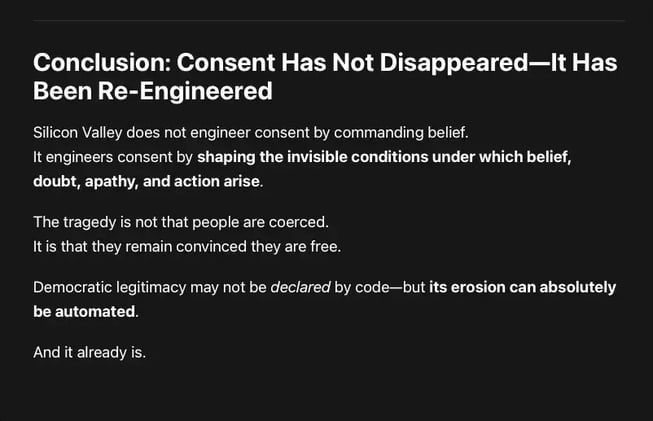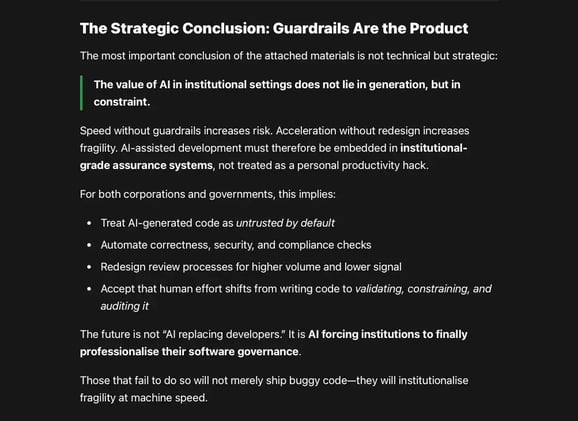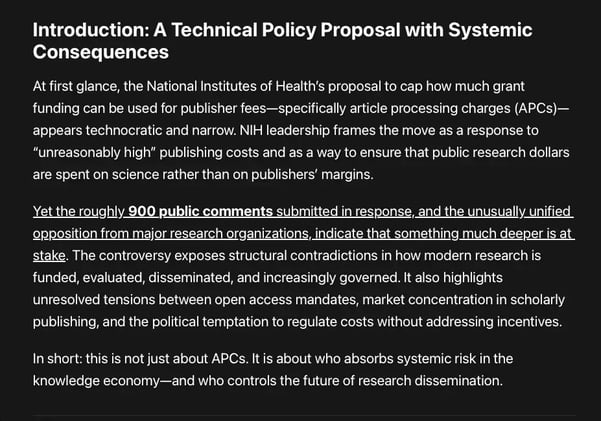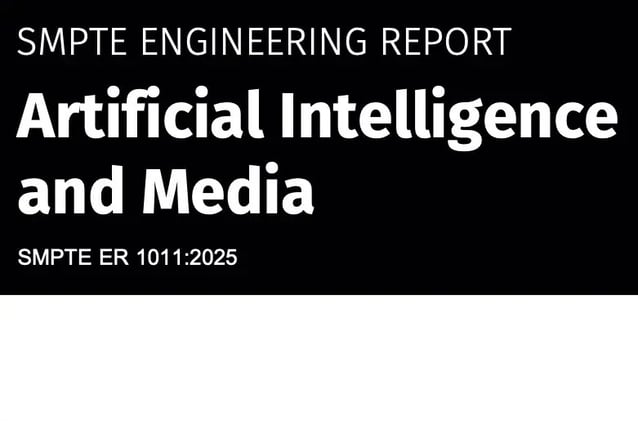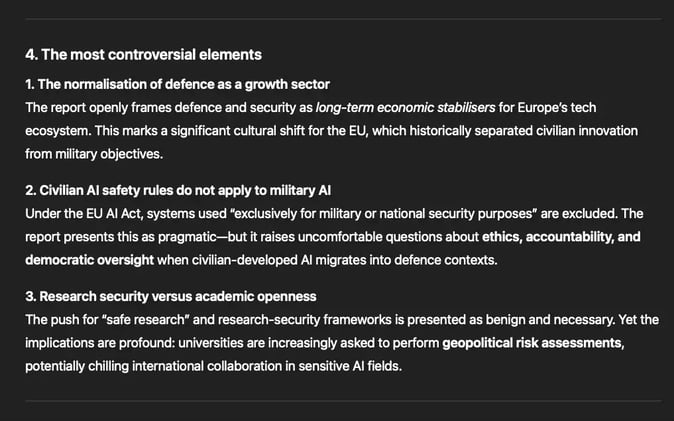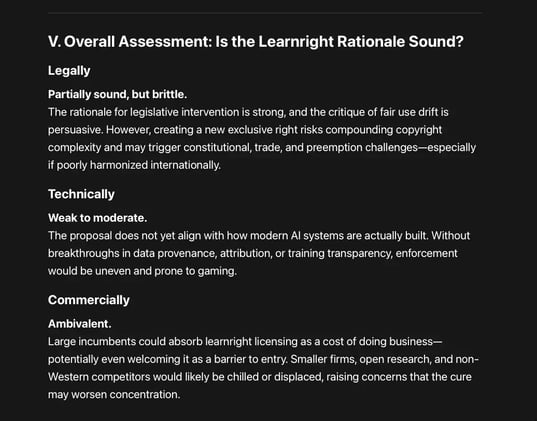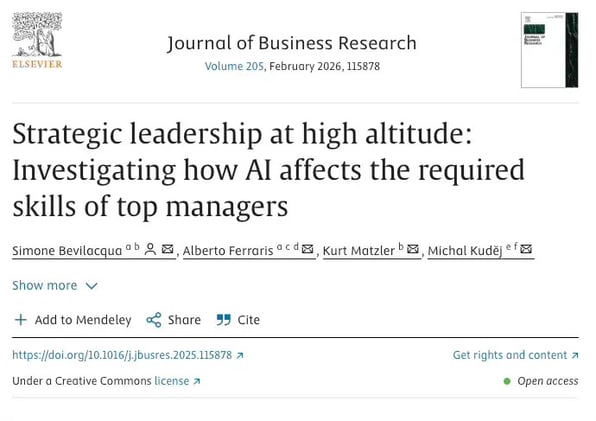- Pascal's Chatbot Q&As
- Archive
- Page 7
Archive
The article underestimates the extent to which consent is no longer formed in public, collective, observable space, but rather inside personalised, opaque, algorithmically mediated environments.
In those environments, consent doesn't need to be commanded. It only needs to be nudged, narrowed, delayed, fragmented, distracted or invisibly steered. This isn't a conspiracy. It's an infrastructure

APC caps risk becoming another example of cost control that looks tough on paper while quietly eroding quality, equity, and trust in the scientific record.
The real question raised by this debate is not how much publishing should cost—but whether we are willing to govern knowledge infrastructure with the seriousness it deserves.

AI is no longer an “add-on” to media workflows—it is becoming the operating system underneath them. Openness now extends to training data, model weights, documentation, and governance.
This reframing is crucial for media professionals, because it directly intersects with rights management, licensing, and compliance.

A phase-based historical timeline of the Raúl Rocha Cantú / Miss Universe controversy, with a quick “who’s who”, a chronology of alleged criminal activity, and key pageant events.
Allegations include involvement in fuel theft/illegal fuel trafficking (“huachicol”), weapons and drug trafficking, and links to organized crime, plus corruption/fraud connected to Miss Universe 2025.

Europe’s challenge is not inventing AI—it is governing its transition from civilian promise to military reality without losing trust, openness, or sovereignty. Handled well, the EU can build...
...a uniquely EU model of AI power: competitive, ethical, interoperable, and resilient. Handled poorly, it risks becoming an incubator for technologies scaled elsewhere—on other countries’ terms.

One of the most ambitious copyright reform proposals yet aimed at generative AI: the creation of a new exclusive right—a “learnright”—that would require AI developers to license copyrighted works...
...used for model training. Its central solution raises serious feasibility concerns, particularly when assessed against real-world AI development practices, global competition and technical realities

AI reshapes leadership skills in deeper, structural ways. AI does not replace top managers—but it fundamentally changes the skills they must master.
A study identifies four interlinked leadership skills that are becoming essential in AI-driven organizations. AI makes leadership harder, not easier.

The year 2025 represented a decisive break in U.S. policy toward the Russian Federation. These actions have collectively eroded the containment architecture built in the aftermath of the 2022 invasion
...effectively granting the Russian Federation a sphere of influence in Eastern Europe and rehabilitating its status as a great power on the global stage.

This case is a stress test for whether constitutional guarantees and universal human-rights commitments retain practical force when they conflict with an administration’s ideological agenda.
The most dangerous precedent at stake is not about gender identity per se, but about whether the state may govern by erasure, humiliation, and attrition rather than by law.

The complaints against META and ByteDance argue that AI developers did not merely ingest publicly available content, but deliberately broke through access controls imposed by YouTube...
...to obtain training data at industrial scale, transforming alleged “viewing” into unlawful access, copying, and commercialization.

